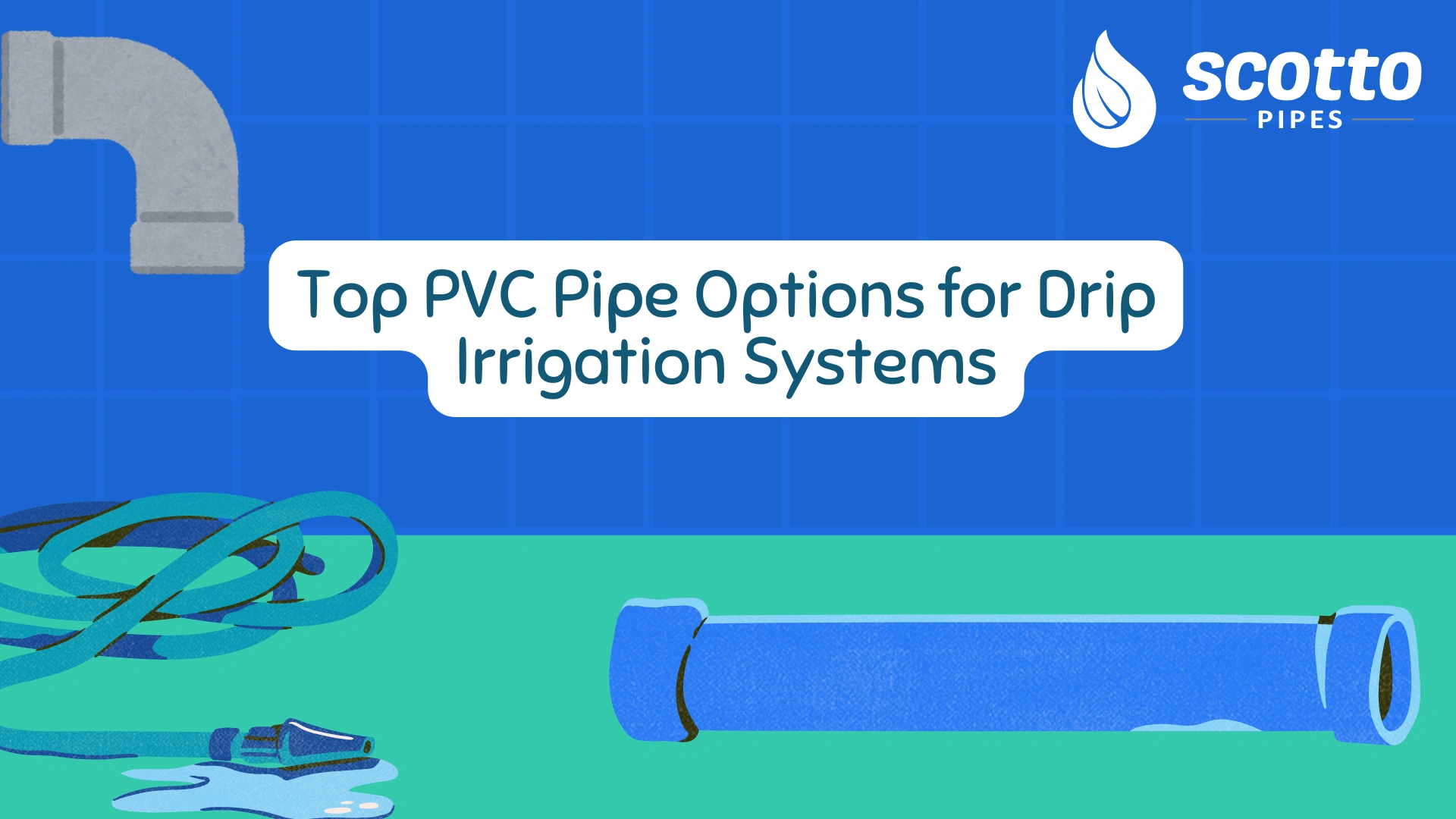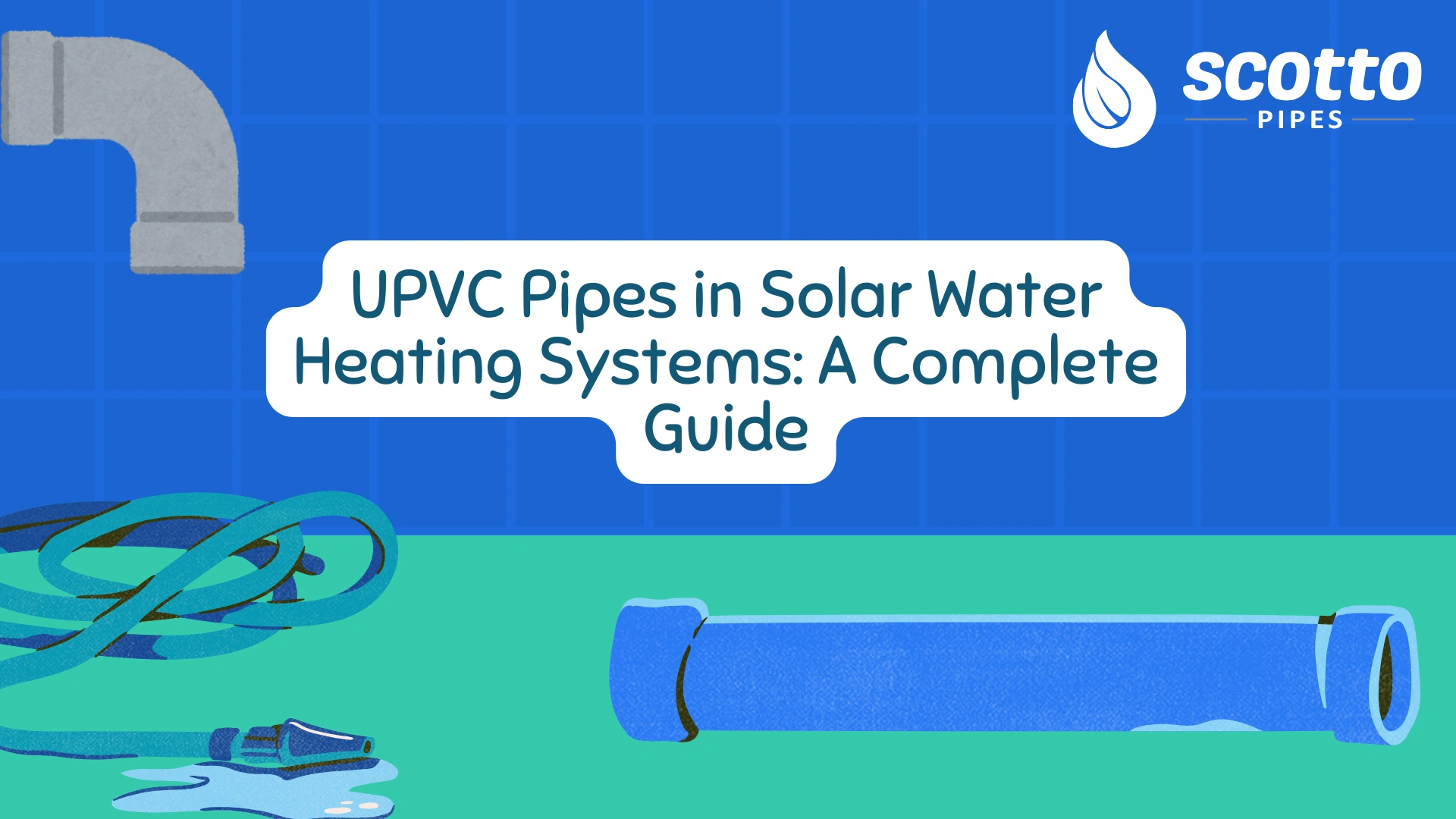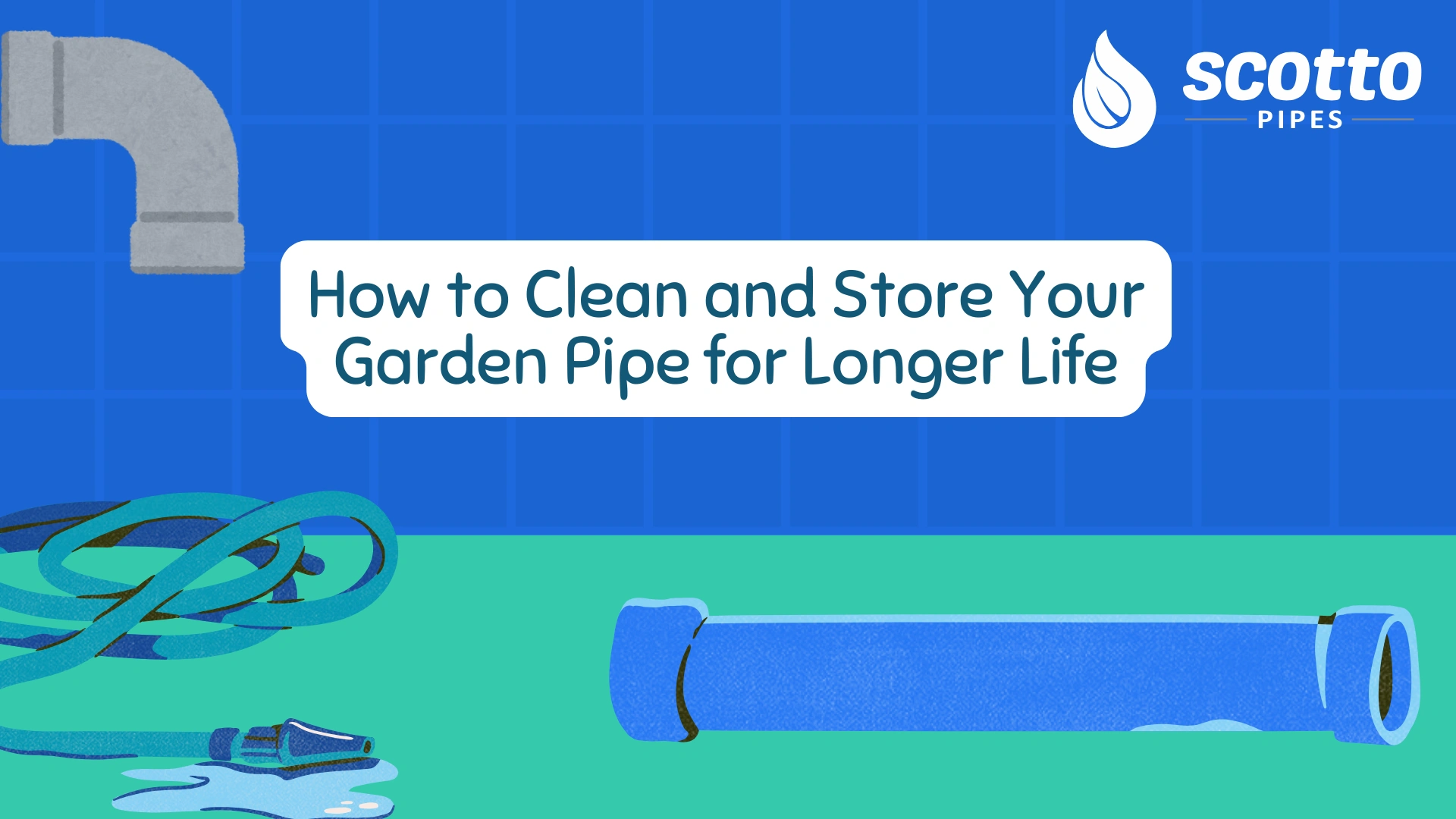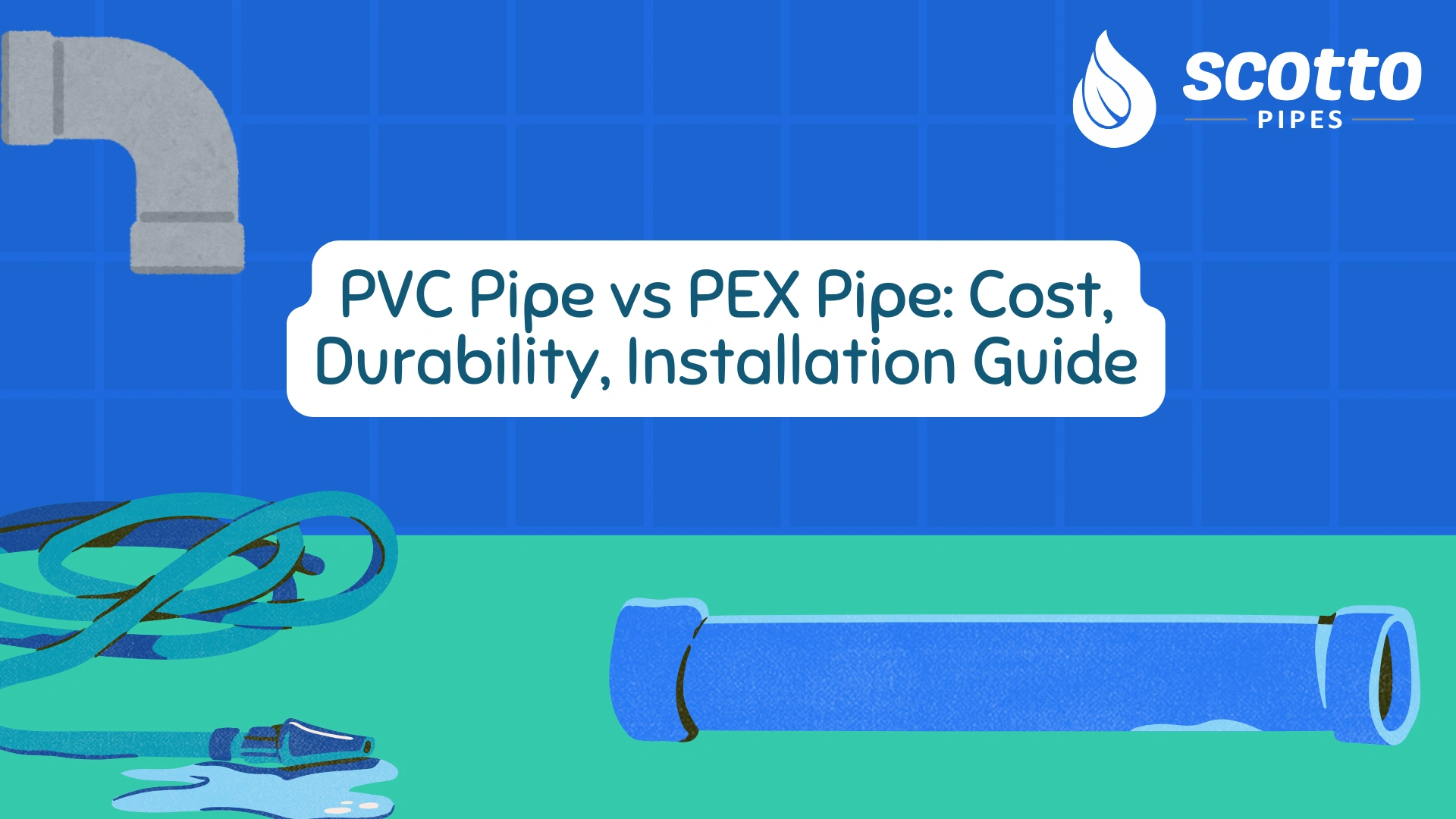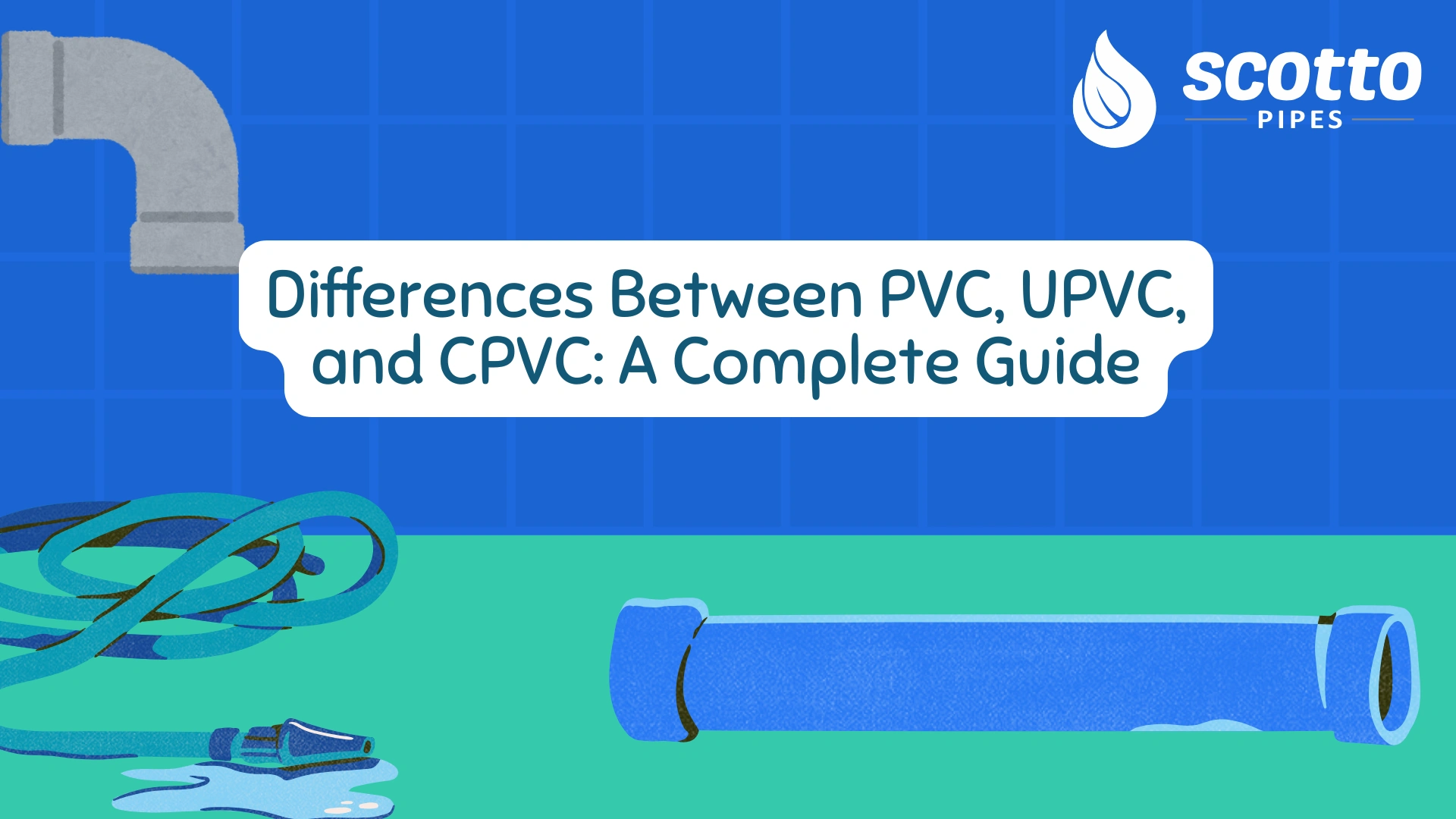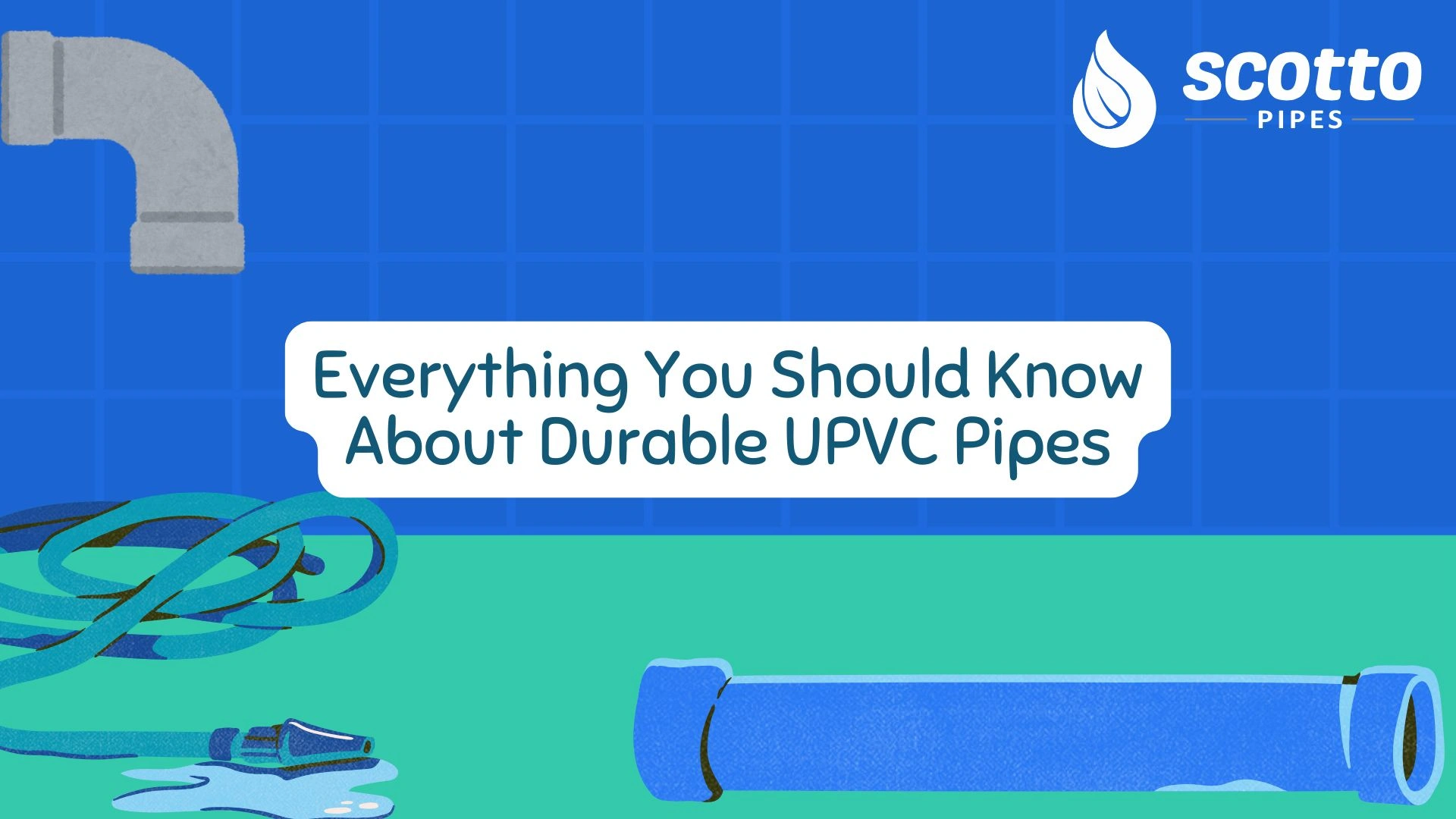
Since the UPVC pipes are made out of a polymer of vinyl chloride they are robust and highly sustainable form of piping infrastructure for the newer constructions. In sewage, water supply purposes or for industries, UPVC pipes allow versatility in a product that surpasses the capabilities of many other materials. In this extensive article, you will learn all the information on UPVC pipes such as what they are, why you should use them, where they can be used and how to take care of them.
What Are UPVC Pipes?
UPVC pipes are basically PVC pipes that had the incorporation of plasticizers omitted with the understanding that they produce a hard and sturdy water pipe. As compared to the normal PVC, the U type never flexes and has even better strength for the purpose of pressure and duration.
Key Features of UPVC Pipes
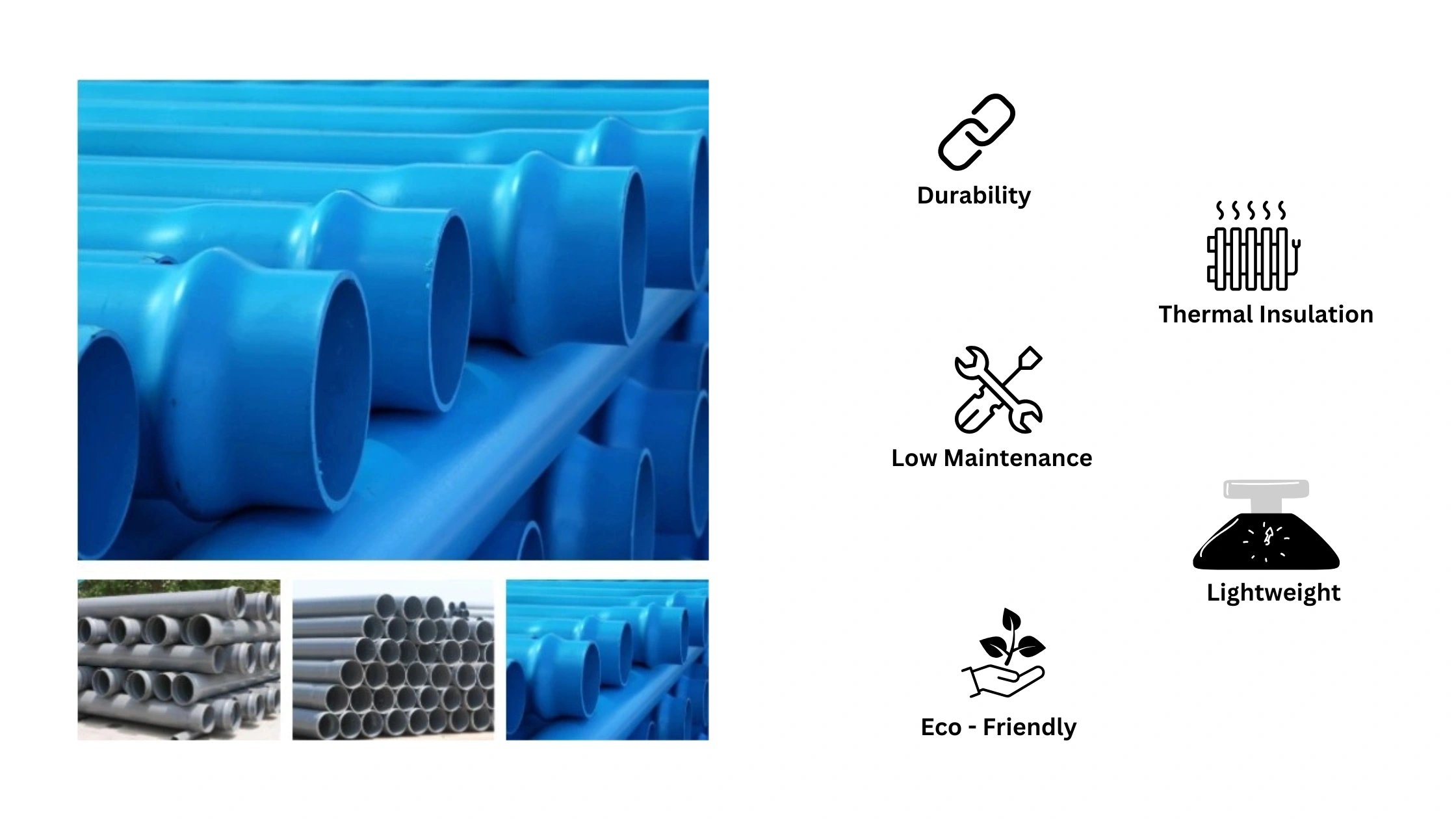
1. Durability and Longevity
High Strength: UPVC pipes possess high strength and rigidity, therefore, do not corrode easily, breakage or abrasion on surfaces. It also ensures that these products will have a long life span in use as well as in hostile conditions.
Corrosion Resistance: Corrosion from chemicals, acids and alkalis are not friendly to them, they remain intact while transporting aggressive materials.
2. Lightweight and Easy Installation
Lightweight: Since UPVC pipes are relatively lighter to other pipes, transport and installation cost is relatively cheap, conveying none or little use to bulky and costly equipment.
Ease of Handling: Their versatility makes them effective to be used especially during construction related activities.
3. Low Maintenance Requirements
UPVC pipes are safe from corrosion and hence does not require painting or additional protection like other pipes, making it cheaper in costs of maintenance during their useful life.
4. Excellent Thermal Insulation
These pipes possess the good thermal convection characteristic which prevents heat exchange between the environment and pipes, advantageous in HVAC systems.
5. Environmental Friendliness
Non-toxic: UPVC is non toxic and does not contribute hazardous materials into the surrounding environment thus makes a better solution for water supply systems.
Recyclable: The material used is also reusable hence cutting on the amount of waste and energy required as compared to other materials for instance metal.
Advantages of UPVC Pipes
Cost-Effective: UPVC pipes are cheaper compared to metallic pipes in regard to their prices in the market as well as the charges quitted for their installation.
Leak-Proof Joints: They can be joined using solvent welding techniques that make assemblies strongly leak proof.
Chemical Resistance: UPVC pipes are highly chemically resistant or in other words, UPVC pipes are capable of withstanding chemical and corrosion.
Applications of UPVC Pipes
UPVC pipes are used unreservedly by many industries owing to the exceptional characteristics of the pipes. Here are some of their industrial applications:
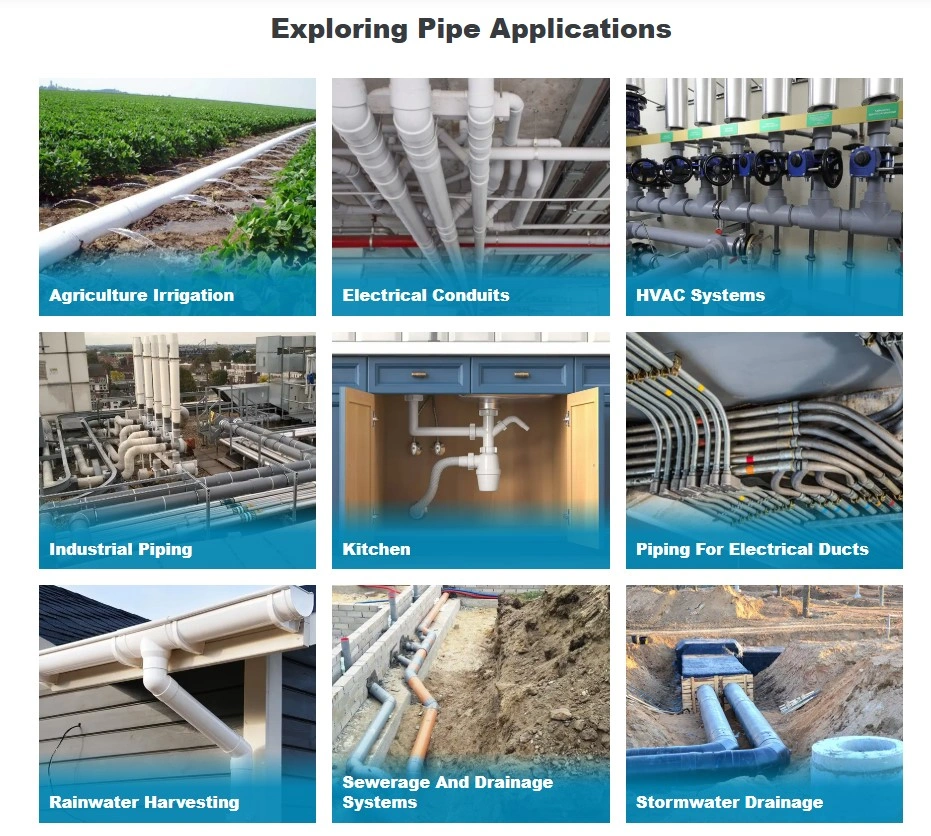
1. Plumbing and Water Supply: UPVC pipes are commonly used for both domestic and industrial use for the installation of pipes for supply of water and waste removal. The management of the water guarantees safety and reliability of drinking water through their ability to transport it to the end users without getting contaminated.
2. Irrigation Systems: The UPVC pipes are the best to be used in drainage systems for instance in harvesting and managing of rain water or sewage systems due to its ability to resist any chemical influence and has a longer life span as compared to the rest.
3. Drainage and Sewage: The UPVC pipes are the best to be used in drainage systems for instance in harvesting and managing of rain water or sewage systems due to its ability to resist any chemical influence and has a longer life span as compared to the rest.
4. Industrial Applications: UPVC pipes find application in the transportation of chemicals, oily substances and gaseous substances in different industries. Such features allow protection from hazardous compounds due to non-reactive natures of the substances.
5. Electrical Conduits: UPVC pipes also afford electrical wiring by providing protection from the outside world to the cables.
6. Construction: They find application in drainage and water supply services that favor building constructions in homes and business places due to the massive reliability that comes with their usage.
7. Agriculture: Applied to the irrigation technologies to improve use of water resources and fertilizing for sustainable agriculture.
UPVC Pipes vs. Other Pipe Materials
When compared to other types of pipes, UPVC pipes offer several advantages:
| Feature | UPVC Pipes | Metal Pipes | Concrete Pipes |
| Corrosion Resistance | Excellent | Prone to Rust | Not Applicable |
| Weight | Lightweight | Heavy | Very Heavy |
| Installation Cost | Low | High | Very High |
| Durability | Over 50 Years | 20–30 Years | 30–50 Years |
| Eco-Friendliness | Recyclable | Non-Recyclable | Limited |
How to Choose the Right UPVC Pipe
When selecting UPVC pipes, consider the following factors:
-
Application Requirements: Determine whether the pipes are to be used for plumbing, drain-ages or some industrial use, since different uses require pipes with different characteristics.
-
Pipe Dimensions: There are thus a variety of ways by selecting the right pipes diameter and wall thickness to fit in pressure and flow rate demanded on an industry.
-
Manufacturer Reputation: Choose from the best UPVC pipe manufacturer whose products have passed through quality tests.
Maintenance Tips for UPVC Pipes
UPVC pipes are low maintenance, but following these tips can extend their lifespan:
-
Regular Cleaning: This means that any obstacles into the flow course must be cleared so that the flow rate continues at normal standards.
-
Check for Leaks: They should perform a routine check of joints and connections in order to prevent leakage.
-
Avoid Overloading: It is also important not to go beyond these pressure limits for damage is inevitable.
-
Protect from Extreme Impact: UPVC pipes are relatively strong but they are vulnerable to mechanical pressure that causes them to crack.
Innovations in UPVC Technology
-
UV-Resistant Coatings: To promote the use in outdoor conditions in order to improve performance..
-
Advanced Joining Techniques: Enhancements in the way connections are made especially with increased onto security.
-
Eco-Friendly Manufacturing: Better concern about the carbon print while producing the products they intend to market.
Conclusion
Therefore, UPVC pipes are very good products for plumbing, drainages, and industrial solutions due to their flexibility, durability, high tensile strength, and resists internal and external corrosion. Their structural framework and strong performance in relation to environmental conditions recommended them for domestic and industrial applications. In any case, UPVC pipes provide the lasting quality of the water supply with minimum maintenance when it comes to choosing the water supply pipe, drainage systems, or industrial fluid transportation.
As a leading UPVC pipes manufacturer, Scotto Pipes offer quality material to construction industry so as to make your projects sustainable and efficient. In order to know how we can help you with our products contact us today.
FAQs
1. Are UPVC pipes safe for drinking water?
Yes, UPVC pipes are non-toxic and free from harmful chemicals, making them safe for potable water supply.
2. How long do UPVC pipes last?
UPVC pipes have a lifespan of over 50 years when properly installed and maintained.
3. Can UPVC pipes be used for hot water supply?
UPVC pipes are not recommended for hot water supply due to their limited thermal resistance. CPVC pipes are better suited for high-temperature applications.
4. How are UPVC pipes installed?
UPVC pipes are lightweight and easy to install using simple jointing techniques like solvent welding or push-fit connections.
5. Are UPVC pipes recyclable?
Yes, UPVC pipes are 100% recyclable and contribute to sustainable construction practices.
6. How do UPVC pipes compare to CPVC pipes?
While UPVC pipes are ideal for cold water and drainage systems, CPVC pipes are better suited for hot water applications due to their higher thermal resistance.


